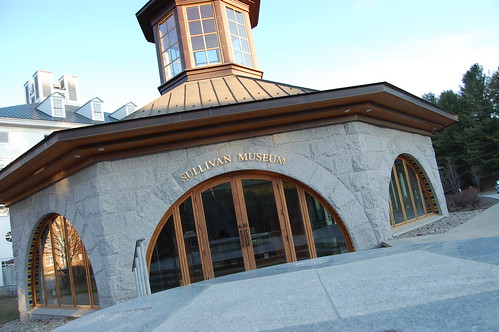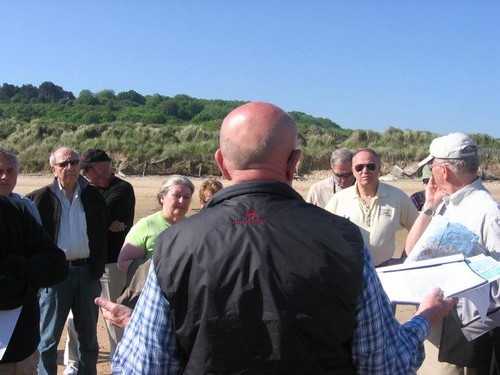Learning to Understand
/ Earlier today, the former Chief of Staff of the U.S. Army, Gen. Gordon Sullivan, spoke at the museum at Norwich University's campus that bears his name for a brief talk to students. As he opened, he noted that he didn't have a plan for what he wanted to talk about, but pointed out objects in one of the rooms that related to his experience within the time that he had spent in the military. Over the course of his 36 year career, Sullivan has seen a lot: he volunteered to go to Vietnam and served for a couple of tours there, while his career culminated in his presiding over the transition of the U.S. Army after the fall of the Soviet Union, and the massive changes that came as a result of that. A number of points that Sullivan brought up stuck with me over the course of his talk.
Earlier today, the former Chief of Staff of the U.S. Army, Gen. Gordon Sullivan, spoke at the museum at Norwich University's campus that bears his name for a brief talk to students. As he opened, he noted that he didn't have a plan for what he wanted to talk about, but pointed out objects in one of the rooms that related to his experience within the time that he had spent in the military. Over the course of his 36 year career, Sullivan has seen a lot: he volunteered to go to Vietnam and served for a couple of tours there, while his career culminated in his presiding over the transition of the U.S. Army after the fall of the Soviet Union, and the massive changes that came as a result of that. A number of points that Sullivan brought up stuck with me over the course of his talk.
General Sullivan is a person that I personally admire greatly, and I’ve had the pleasure of meeting him a couple of times: the first was in 2007, shortly after I graduated from Norwich with a B.A. in History. Several short days after I walked, I boarded a plane for England, then France, and found myself in Normandy with a contingent from Norwich, with Generals Sullivan and Nelson leading the tour of the battlefield, providing a rich amount of historical context for the battlefield, but also an incredible amount of information on the value of good leaders. There is no better place to highlight that issue than on a battlefield, and over the years since, I’ve become fascinated in how this can be applied to everyday life.
One topic that he touched on has particular significance in the modern face of warfare. “It takes troops on the ground, not technology, to solve problems.” To illustrate this, he picked up a piece of metal, a tool that was used in gun, and pointed out that it took over a hundred people to make that part: it was a high tech piece of machinery, and is likely the cumulative result of thousands of hours of research and development, testing and deployment. He then took our attention to a wooden cowbell on the wall of the exhibit, noting that we (The U.S.) were operating in an area where this was a level of technology, and that the combatants on the battlefield could face the United States and come out victorious.

During his tenure of the U.S. Army Chief of Staff during the Clinton Administration, he was working to transition the military after the end of the Cold War, when the operation at Mogadishu resulted in a number of U.S. casualties. The point that he made seemed to wear on him, and he noted that every soldier that died represented a huge loss, losses that the rest of the army, and himself, as the top of the chain of command, were responsible for. And, he noted, this was in a time of peace. His attitude towards the current operations is fairly clear: “You can't kill your way to victory”, and through this, the U.S. has to work with people, get them to change their minds, in order to succeed in this new battlefield.
At one point in his talk, Sullivan noted that he was proud to be a Norwich graduate: "I am proud to say that I took an oath in 1955... I've been part of this for 50 years, and it started here." (paraphrased), and that Norwich was an important place in his life. This has gotten me thinking all afternoon about the value of the two educations that I’ve earned here. The world, and military affairs are incredibly complicated businesses, and a certain level of comprehension brings about a different understanding of the situation.
The military affairs that are going on now are not as cleanly cut as portrayed, and winning is simply not as it was fifty years ago. The military has an ongoing change as its mission shifts from one enemy to others, and with different styles of fighting. Leadership, of the highest caliber, is required to guide these transitions, and I believe that the education that I’ve gotten here, and since earning the official stamps of approval, have given me the mindset that is really required of understanding (at least in part) some of these elements, which I feel will become even more important to our lives. However, as it grows in importance, there needs to be a greater importance in comprehending said events.
I personally count my time in Normandy as one of the most formative educational experiences of my life. I hope that others will follow.
